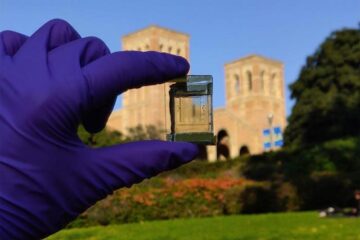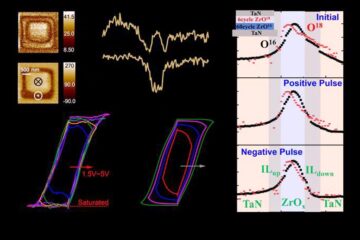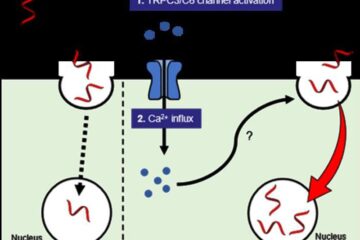Researchers identify variations in 4 genes associated with an increased risk of colorectal cancer

Peters and colleagues for the past four years have been studying the genes linked to colorectal cancer through the Genetics and Epidemiology of Colorectal Cancer Consortium, a collaboration involving researchers from North America, Australia and Europe who have pooled data from approximately 40,000 study participants, about half of whom have colorectal cancer. Fred Hutch houses GECCO's coordinating center and Peters is its principal investigator.
The genomewide-association study was conducted in two phases. The first involved rapidly scanning complete sets of blood DNA from 12,696 people with colorectal cancer or a precancerous condition called adenoma. This data was then compared to the same set of variants from 15,113 healthy controls of European descent.
Of 2.7 million genetic variants identified, the 10 most statistically significant mutations associated with colorectal cancer were then further analyzed in a follow-up genomewide-association study of 3,056 colorectal cancers or adenomas and colon-tissue samples from 6,658 healthy controls of European and Asian descent.
The research team uncovered mutations in the following genes – all genetic variants that previously had not been associated with colorectal cancer:
NABP – a gene involved in DNA repair
LAMC1 – the second gene in the laminin gene family found to be associated with colorectal cancer
CCND2 – a gene involved in cell-cycle control, which is a key control mechanism to prevent cancer development
TBX3 – a gene transcription factor that targets a known colorectal cancer pathway
If a person carries one or two copies of any of these genetic variants, their risk of colorectal cancer is increased by 10 percent to 40 percent compared to a person who does not harbor such DNA genetic variants, Peters said.
“These findings could potentially lead to new drug targets and, in combination with previously identified genetic and environmental risk factors, identify subgroups of the population that can benefit most from colorectal-cancer screening and could be targeted for early or more frequent endoscopy, a very effective screening tool for colorectal cancer,” said Peters, a member of the Public Health Sciences Division at Fred Hutch.
GECCO is funded by the National Cancer Institute, the National Institutes of Health and the U.S. Department of Health and Human Services.
At Fred Hutchinson Cancer Research Center, home to three Nobel laureates, interdisciplinary teams of world-renowned scientists seek new and innovative ways to prevent, diagnose and treat cancer, HIV/AIDS and other life-threatening diseases. Fred Hutch's pioneering work in bone marrow transplantation led to the development of immunotherapy, which harnesses the power of the immune system to treat cancer with minimal side effects. An independent, nonprofit research institute based in Seattle, Fred Hutch houses the nation's first and largest cancer prevention research program, as well as the clinical coordinating center of the Women's Health Initiative and the international headquarters of the HIV Vaccine Trials Network. Private contributions are essential for enabling Fred Hutch scientists to explore novel research opportunities that lead to important medical breakthroughs. For more information visit www.fhcrc.org or follow Fred Hutch on Facebook, Twitter or YouTube.
Media Contact
More Information:
http://www.fhcrc.orgAll latest news from the category: Life Sciences and Chemistry
Articles and reports from the Life Sciences and chemistry area deal with applied and basic research into modern biology, chemistry and human medicine.
Valuable information can be found on a range of life sciences fields including bacteriology, biochemistry, bionics, bioinformatics, biophysics, biotechnology, genetics, geobotany, human biology, marine biology, microbiology, molecular biology, cellular biology, zoology, bioinorganic chemistry, microchemistry and environmental chemistry.
Newest articles

Advance in light-based computing
…shows capabilities for future smart cameras. UCLA-developed experimental device demonstrates ability to reduce glare in images. Researchers developing the next generation of computing technology aim to bring some light to…

Evidence for reversible oxygen ion movement during electrical pulsing
…enabler of the emerging ferroelectricity in binary oxides. In a recent study published in Materials Futures, researchers have uncovered a pivotal mechanism driving the emergence of ferroelectricity in binary oxides….

Next-generation treatments hitch a ride into cancer cells
Researchers from Osaka University discover that opening a channel into cancer cells helps antisense oligonucleotide drugs reach their targets. Antisense oligonucleotides (ASOs) are next-generation drugs that can treat disease by…





















